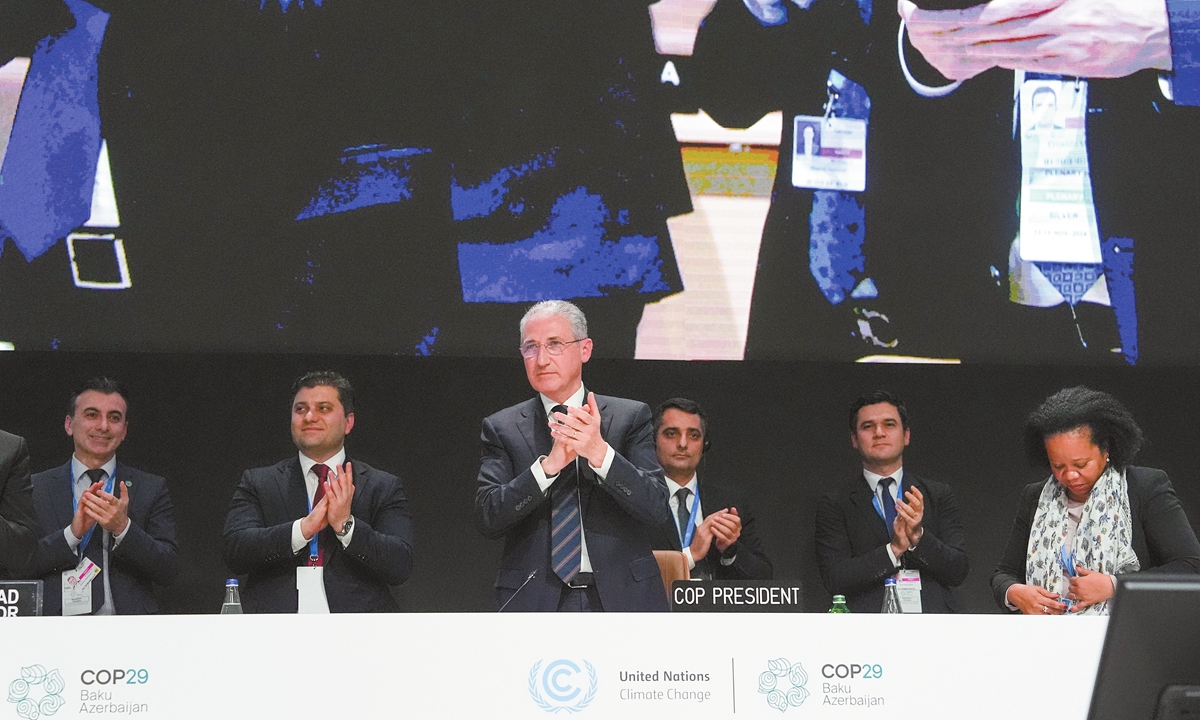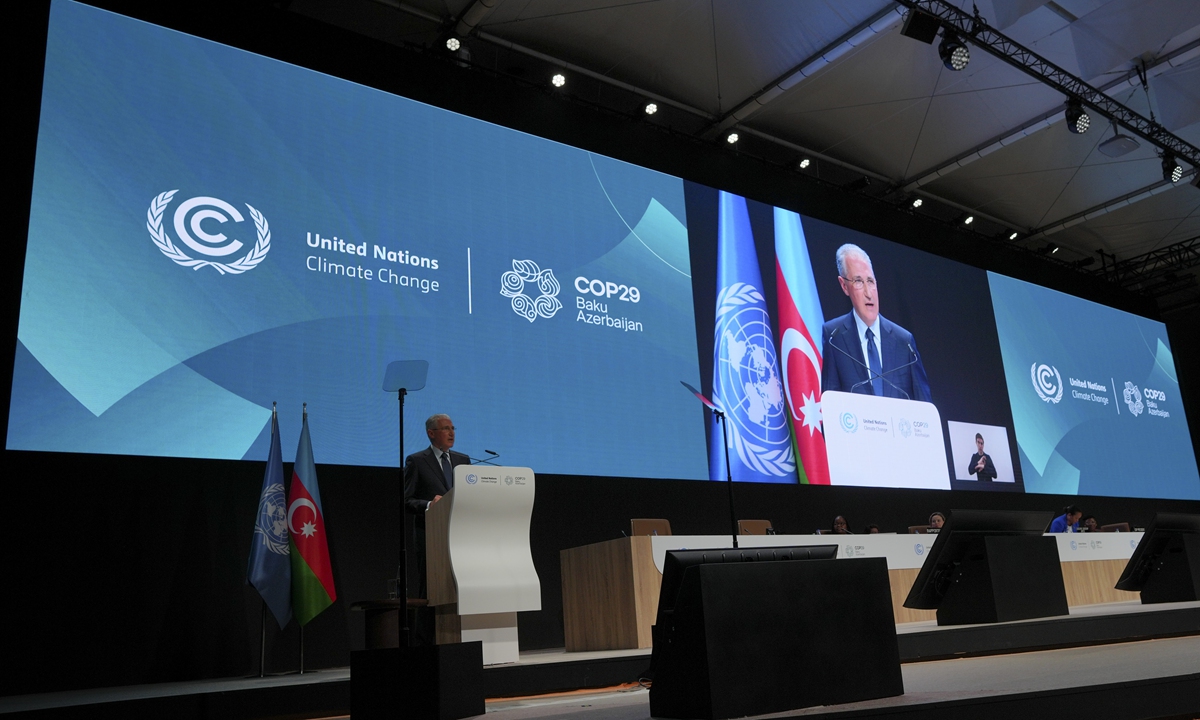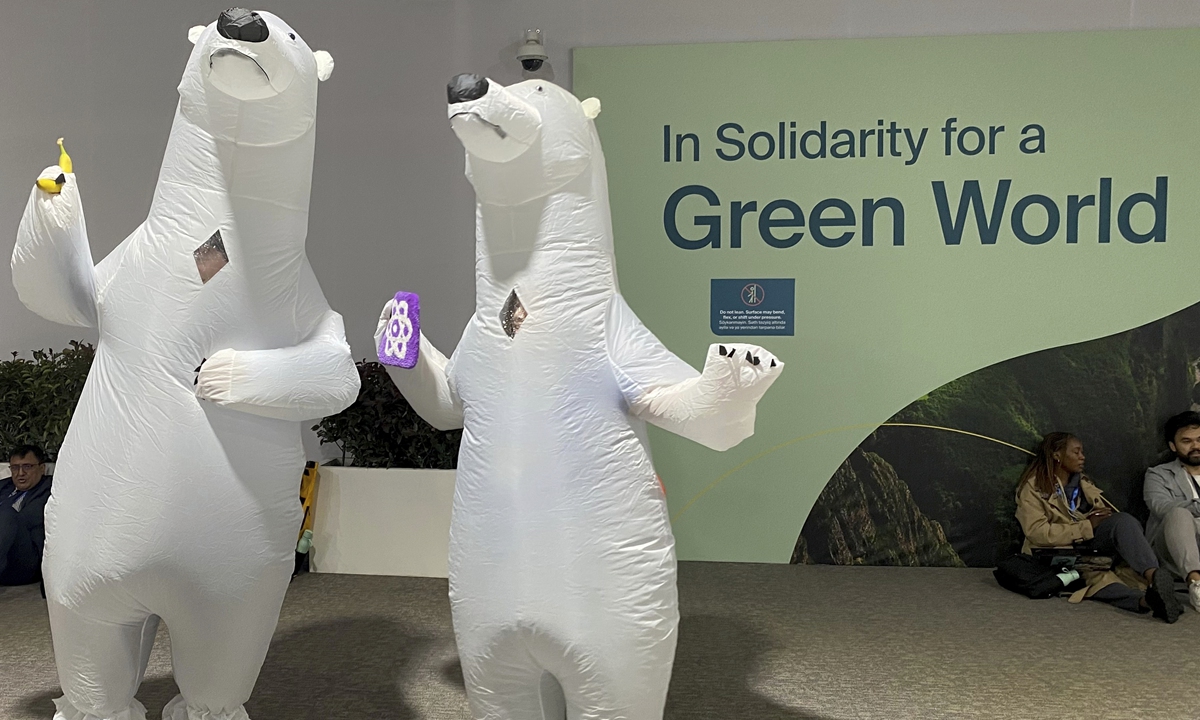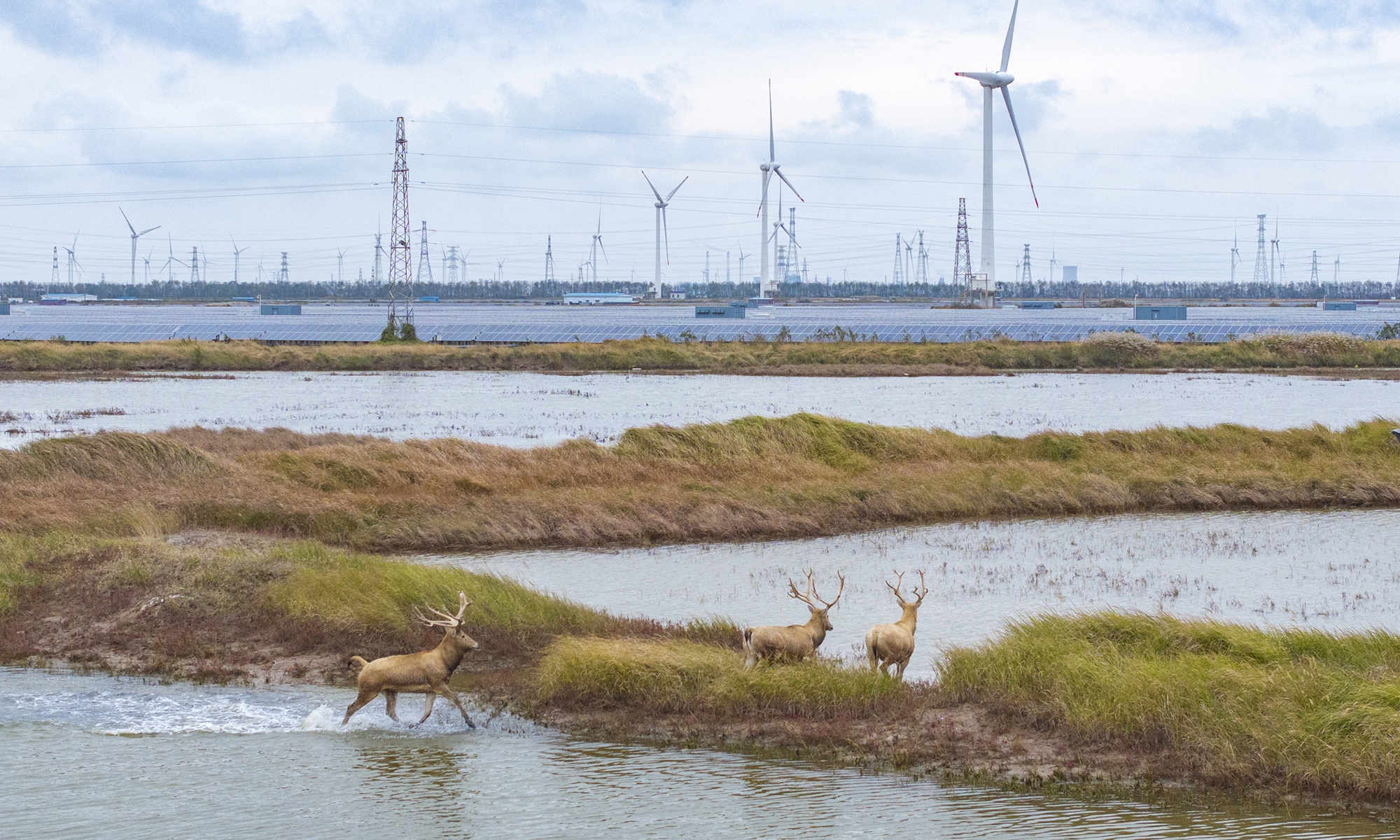$300 billion global climate deal seen as 'insufficient,' implementation requires accountability mechanism: expert

Mukhtar Babayev, COP29 President, speaks during a plenary session at the COP29 UN Climate Summit on November 23, 2024, in Baku, Azerbaijan. According to the UN, rich nations pledged to contribute at least $300 billion annually to the global fight against climate change as UN climate talks came to a contentious end early on the day in Baku. Photo: VCG
Countries at the COP29 summit in Baku adopted a $300 billion a year global finance target on Sunday to help poorer nations cope with impacts of climate change, a deal its intended recipients criticized as "woefully insufficient," Reuters reported. Chinese experts questioned the fulfillment of the deal as there is a lack of mandatory accountability mechanism for rich nations.
The agreements included decisions on the New Collective Quantified Goal for climate financing and issues relating to the global carbon market mechanism under Article 6 of the Paris Agreement. The agreements set the post-2025 climate finance targets, including an annual funding of at least $300 billion from developed countries and a broader climate financing goal of at least 1.3 trillion dollars per year by 2035 to support the climate actions of developing countries, according to Xinhua News Agency.
"Developed and developing countries entered the negotiations far apart. At one point on Saturday, the talks appeared to be on the brink of collapse, before numerous closed-door meetings brought a deal closer…. Under a compromise, rich nations eventually agreed to commit $50 billion more than called for in a draft agreement on Friday," said a Bloomberg report.
The chair of the Alliance of Small Island States, Cedric Schuster, said: "Our islands are sinking. How can you expect us to go back to the women, men, and children of our countries with a poor deal?"
Sierra Leone's climate minister Jiwoh Abdulai said it showed a "lack of goodwill" from rich countries to stand by the world's poorest as they confront rising seas and harsher droughts. Nigeria's envoy Nkiruka Maduekwe put it more bluntly: "This is an insult," an AFP report said.
"This has been the most horrendous climate negotiations in years due to the bad faith of developed countries. This was meant to be the finance COP, but the Global North turned up with a plan to betray the Global South," Tasneem Essop, executive director of a non-governmental organization called Climate Action Network, wrote in a statement titled "Betrayal in Baku: developed countries fail people and planet."
There is a lack of a mandatory accountability mechanism for climate finance commitments, allowing wealthy countries to selectively fulfill their promises without facing serious consequences. This systemic flaw undermines the credibility of the commitments, Sun Shao, a senior researcher at Chinese Academy of Meteorological Sciences, told the Global Times on Monday.
In a speech at the COP29 closing plenary session, Zhao Yingmin, head of the Chinese delegation and vice minister of ecology and environment, emphasized that addressing the global climate crisis requires adhering to the principle of "common but differentiated responsibilities," upholding multilateralism, and working together for mutual benefit.
China, as a developing country, in the face of uncertainties in the international landscape, remains committed to supporting the Paris Agreement and multilateralism, showcasing a responsible image as a major power to the world on addressing climate change, Sun said.
As the world's second largest economy, China's economic clout, total carbon emissions and green technology capabilities have all increased significantly, and developed countries are looking to China to shoulder more responsibilities. But the problem lies in the fact that developed countries have ignored the principle of "common but differentiated responsibilities" and failed to take full account of the fact that China is still a developing country with a much lower per capita carbon emission and historical cumulative emissions than developed countries, Sun said.
China needs to fight back against unreasonable funding demands and avoid taking on excessive responsibilities that are not appropriate for its stage of development, Sun noted.
Some developed countries can't on one hand talk extensively about addressing climate change, while at the same time unjustly suppress the green industries of other countries, thereby hindering the pace of global sustainable development, China's special envoy for climate change Liu Zhenmin was quoted by CCTV as saying on Saturday.
Certain developed countries' attitude toward China's climate response is clearly hypocritical, Li Haidong, a professor at the China Foreign Affairs University, told the Global Times. Their stance actually conceals an intention to undermine China's image on the global climate stage while pressuring it to increase its contributions, Li said, "When some individual developed countries speak of righteousness and morality regarding climate issues, it is, in fact, all about political manipulation behind."
Some wealthy countries are not being proactive enough in addressing climate change, and there are even instances of procrastination and shirking responsibility. Developed countries bear a greater historical responsibility for emissions and should therefore take on more financial and technological obligations, which is written within the UN Framework Convention on Climate Change, according to Sun.
However, Sun said developed nations often view climate funding as aid rather than an obligation, lacking a supportive political consensus domestically.
"The lack of long-term commitment and consistency in actions from wealthy countries has amplified the sense of 'betrayal' from the developing countries," Sun noted.




